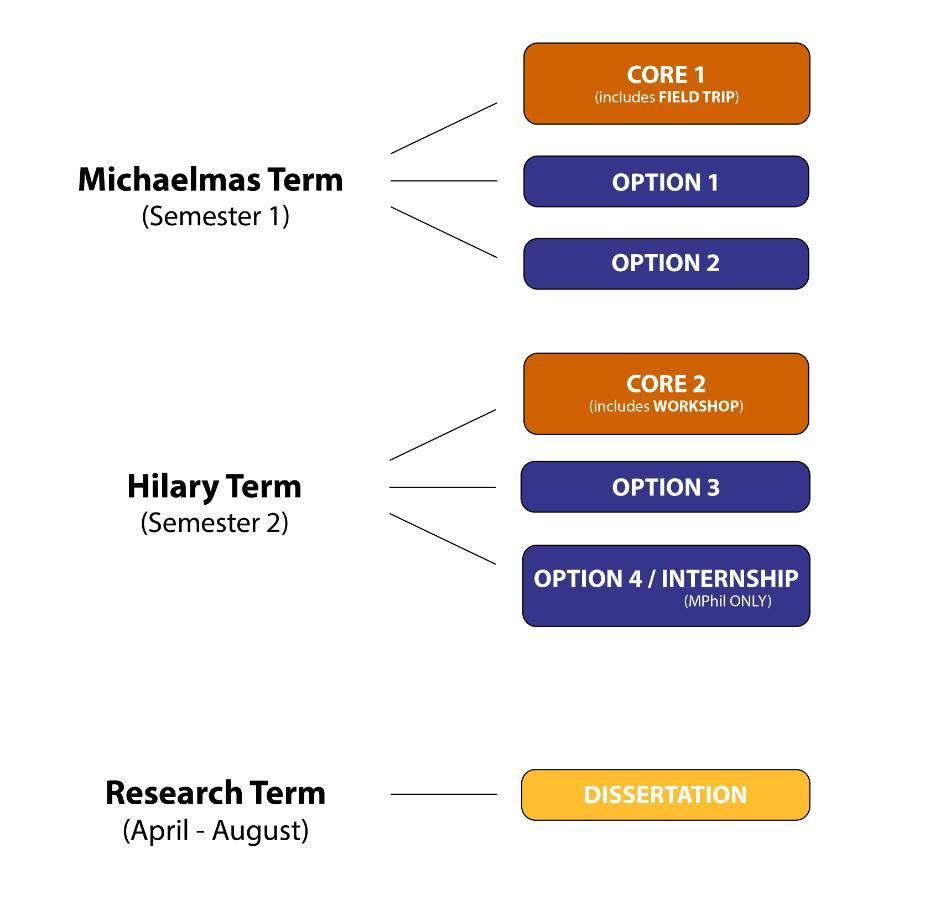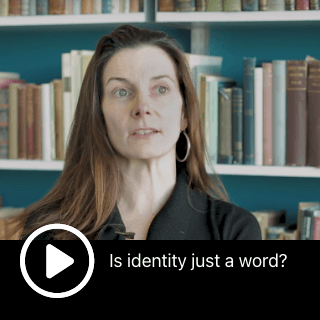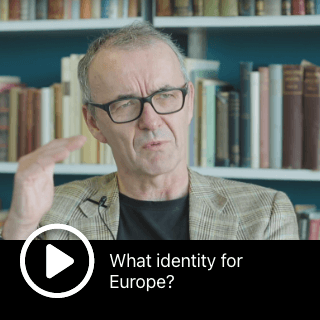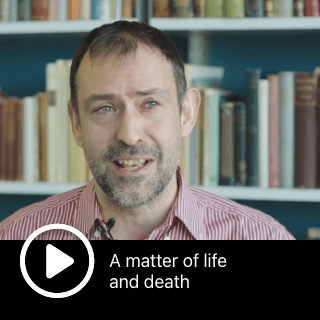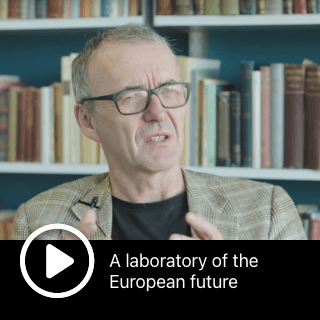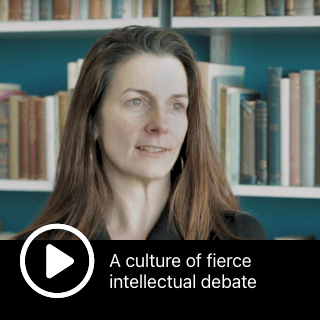About this programme
Postgraduate Taught Programme: Identities and Cultures of Europe
/filters:format(webp)/filters:quality(100)/prod01/channel_3/media/tcd/langs-lits-cultures/images/Identities-Banner-860X35.png)
Why identity?
Identities structure our reality, our desires and our ideas. As such, they assume many shapes and forms: the self and the nation, language and gender, migration and trauma, myth and ideology, class and religion, capitalism and populism, ecology and technology. Above all, identities are crystallised in their representation: in the media and popular culture, in literature and film, but also in imagined communities and destinies, contested histories, and collective memory. Exploring and analysing questions of identity as they have unfolded and continue to unfold in Europe, this one-year taught Masters programme will equip students with the critical tools and real-life experience to understand the complex and varied challenges posed by shifting notions of identity and their very real consequences.
How is the programme structured?
Masters students will enrol in two core modules (one in each semester) on Questions of Identity in Europe. Consisting of a selection of key identity topics, the core modules approach the issue of identity from a range of disciplinary perspectives through theories of identity and case studies. Students will also take four optional modules (two per semester), selected from a wide range of options offered by the programme as well as by other Masters courses at Trinity. Finally, students will complete a research dissertation on a topic of their choice, receiving guidance from researchers who are experts in their respective fields.
What are the unique features of the course?
Students will also take part in a three-day field trip to Belgium (usually during the first semester), where they will have an opportunity to network and create links with key cultural institutions, organisations and NGOs on the continent. During the second semester, students will have the option to do an internship at an approved NGO or cultural institution in Dublin. At the end of the second semester, students will participate in an identities & cultures workshop, which involves a range of engaging activities dealing with questions of identity in an immersive, collaborative and supportive environment.
Research on identities at Trinity College Dublin
In addition, the programme links into the university’s very successful research theme Identities in Transformation. This research theme brings together researchers and postgraduates from across the university and will provide students on the programme with an opportunity to further investigate identity issues through a range of lecture series, debates and postgraduate-led events.
Three stackable programmes | Master’s, Diploma, Certificate
The Identities & Cultures of Europe programme offers three different entry routes, each one with a different number of credits leading to a different award: the Master’s (MPhil) worth 90 credits, the Postgraduate Diploma (PGradDip) worth 60 credits and the Postgraduate Certificate (PGradCert) worth 30 credits.
The entry route of any given student is decided at the point of applying for the course. It cannot be changed during the course of study. However, the Certificate, Diploma and Master’s entry routes can be stacked, meaning that a student may complete one and then another within five years. That means if a student takes the certificate one year, they can build on this the next year by completing the additional work required for the Diploma and finish with that higher qualification. They may then choose to trade in their Diploma, complete the dissertation, and finish with the Master’s. Effectively, this can be used as a way to complete the degree part-time, over the course of two or three years.
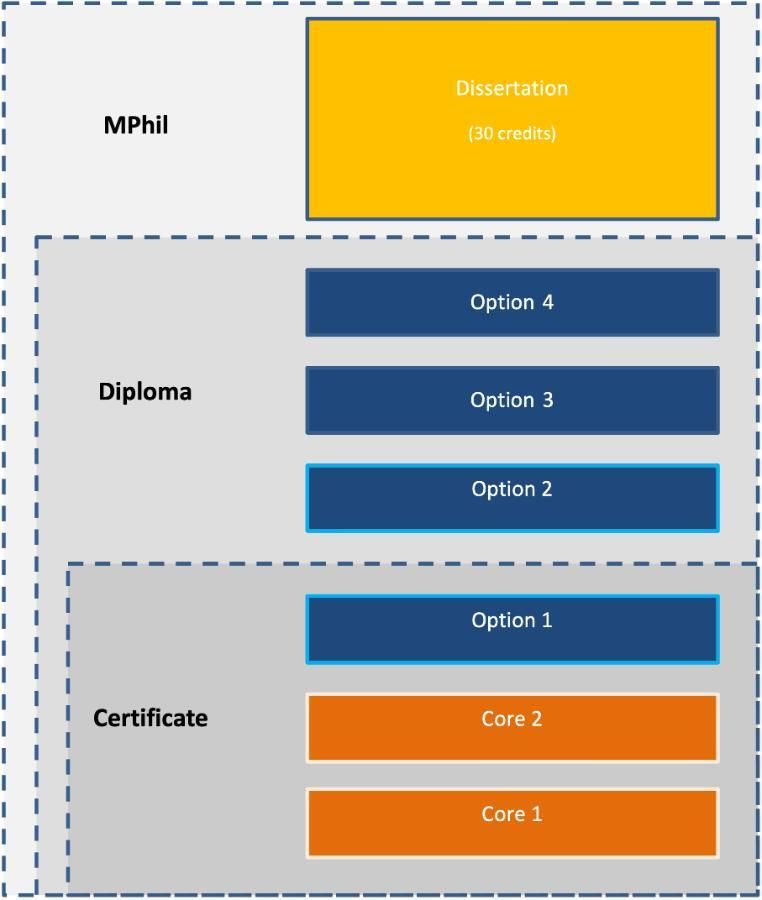
Master’s Degree (MPhil)
Students on the Master’s enrol in 2 compulsory core modules (1 in each semester) on Questions of Identity in Europe. Consisting of a selection of key identity topics, the core modules approach the issue of identity from a range of disciplinary perspectives through theories of identity and case studies. Students will also take 4 optional modules (2 per semester), selected from a wide range of options offered by the programme as well as by other Master’s courses at Trinity. Finally, students will complete a research dissertation on a topic of their choice, receiving guidance from researchers who are experts in their respective fields.
During the first semester, students will also take part in a 3-day field trip to Belgium, where they will have an opportunity to learn about, network and create links with, key cultural institutions, international organisations and NGOs on the continent. During the second semester, students will have the option to do an internship at an approved NGO or cultural institution in Dublin. At the end of the second semester, students will participate in an Identities and Cultures workshop. While the format of the workshop may vary from year to year, the workshop typically features one or more speaker(s) from academia, civil society and/or the creative industries.
Postgraduate Diploma (PGDip)
Students on the Diploma enrol in 2 compulsory core modules (1 in each semester) on Questions of Identity in Europe. Consisting of a selection of key identity topics, the core modules approach the issue of identity from a range of disciplinary perspectives through theories of identity and case studies. Students will also take 4 optional modules (2 per semester), selected from a wide range of options offered by the programme as well as by other Master's courses at Trinity.
During the first semester, students will also take part in a 3-day field trip to Belgium, where they will have an opportunity to learn about, network and create links with, key cultural institutions, international organisations and NGOs on the continent. At the end of the second semester, students will participate in an Identities and Cultures workshop. While the format of the workshop may vary from year to year, the workshop typically features one or more speaker(s) from academia, civil society and/or the creative industries.
Postgraduate Certificate (PGCert)
Students on the Certificate enrol in 2 compulsory core modules (1 in each semester) on Questions of Identity in Europe. Consisting of a selection of key identity topics, the core modules approach the issue of identity from a range of disciplinary perspectives through theories of identity and case studies. Students will also take 1 optional module, selected from a wide range of options offered by the programme as well as by other Master's programmes at Trinity.
During the first semester, students will also take part in a 3-day field trip to Belgium, where they will have an opportunity to learn about, network and create links with, key cultural institutions, international organisations and NGOs on the continent. At the end of the second semester, students will participate in an Identities and Cultures workshop. While the format of the workshop may vary from year to year, the workshop typically features one or more speaker(s) from academia, civil society and/or the creative industries.
